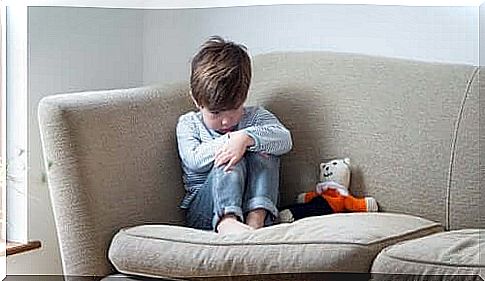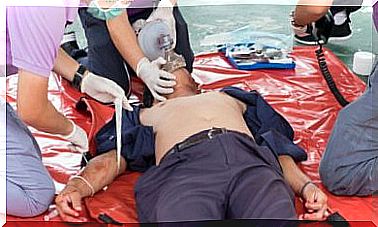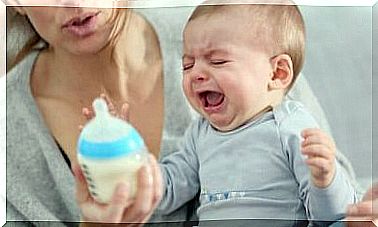Disinhibition Of Social Contact In Children
Disinhibition of social contact is characterized by excessive proximity to strangers. This can involve many risks in the case of children. Find out about the most common symptoms of this disorder, its causes and treatments.

Have you heard of Social Contact Disinhibition Disorder in Children ? This is a type of behavior found in children who spontaneously approach strangers and interact with them without restraint. In some cases, it is linked to Attention Deficit Hyperactivity Disorder.
In this article, we’ll discuss this disorder, and see what its symptoms and diagnosis are. In addition, we are going to share with you the different treatment options for this problem which exclusively affects children.
Disinhibition of social contact in children
How to recognize it?
To get started, here are some common symptoms that can help you spot this disorder in your child:
- The child shows no fear or shyness when meeting someone.
- His attitude is engaged with strangers. He immediately maintains friendly relations with them, talks to them or hugs them easily.
- The child has no difficulty leaving with someone he does not know. He also does not ask permission from his parents or caregivers before doing so.
As one can imagine, children with this disorder are in great danger every day because they are ready to go with a stranger. In addition, they may also have emotional issues with their fellow students or even with members of their family.
When to see a doctor

The following questions will help you decide if you need to see a doctor :
- Does the child seek the support, comfort or company of strangers rather than that of his parents or relatives?
- Is he too sociable or too affectionate with strangers?
- Does he move away from his parents or caregivers when he is in a new place?
- Does he ask very personal questions of people who are unfamiliar to him?
What is the connection with ADHD?
According to some specialists in psychiatry, the disorder of disinhibition of social contact in children may indeed have points in common with attention deficit and hyperactivity disorder (ADHD). However, it is important to know their differences.
The main commonality is the need of these children to form excessive and inappropriate friendships with strangers, as well as their difficulty in setting limits on their social relationships. However, ADHD is not linked to a lack of attachment in the early years of life.
What Are the Causes of Social Contact Disinhibition Disorder?

In some cases, social contact disinhibition disorder can arise from a lack of attention to the child at a very young age. And this, when he was still a baby. This lack of attachment can lead, over the following years, to a disorder of disinhibition of social contact. It is not always due to a lack of affection. They may also be cases of children placed in institutions or homes from an early age.
However, not all children with this disorder have it early in life, even though it is more common. Thus, it is also associated with unstable family environments or those subject to many changes, or even traumatic events.
Can Social Contact Disinhibition Disorder be Treated?
Uninhibited Social Relationships can be treated psychologically. Thus, once the specialist has assessed both the child and the family, individualized treatment can be set up.
The treatment will always take into account the fact that the child feels comfortable in his daily environment and that he can use games or drawing as work tools. The objective will be to support the family, to facilitate their understanding of the disorder and to strengthen the bond between the parents and the child.
When do we start to see improvements in treatment?

It is not known exactly how long it takes for a child to achieve normal healthy emotional and social development and to feel confident and protected in their immediate environment. It may depend on each child, as well as their age.
It is true that some improvements can be seen in a short time. However, this is a long-term job, as it requires follow-up in the event of a possible relapse later. Indeed, certain repressed emotions can sometimes reappear later.
You now know a little more about this disorder which affects children and even adolescents. Making an early diagnosis is important in order to be able to properly treat the disorder. This is because although it is a serious problem, a complete cure is usually possible.









